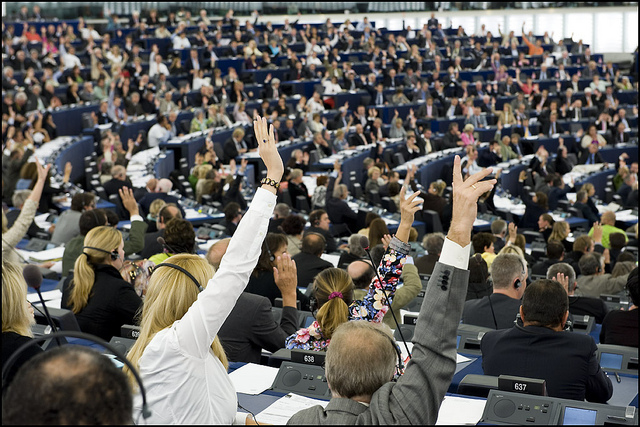The European Parliament has backed the European Commission’s proposal to cut funds to EU countries that do not uphold the rule of law or allow corruption to fester.
Along with Hungary, Poland and Romania, Malta is believed to be in the crosshairs of the new plans, which however still need to be approved by the European Council which is composed of the heads of government of EU member states.
MEPs voted 397 to 158 for a draft law to freeze EU cash if a government was found to be eroding democratic values. The proposals will most likely lead to a fierce battle between national governments.
The vote was welcomed by the European Commissioner for Justice Věra Jourová, who in a tweet said “respect for the rule of law is an essential precondition for sound financial management and effective EU funding.”
The Commission’s plan has been widely seen as a mechanism to exert pressure on countries, especially Hungary and Poland, which have been accused by EU institutions of failing to adhere to the EU’s core values.
Effectively, EU governments who interfere with the courts or who turn a blind eye on fraud and corruption will risk being stripped of EU funds.
Following the Panama Papers revelations and the assassination journalist Daphne Caruana Galizia, the European parliament has raised “serious concerns” about democracy and the rule of law in Malta.
In 2017, the European parliament urged the European Commission to open a dialogue with Malta on the rule of law, a formal process the European commission has embarked on with Hungary and Poland.
I welcome the @Europarl_EN vote on @EU_Commission proposing a new mechanism to protect the EU budget. Respect for the rule of law is an essential precondition for sound financial management and effective EU funding. Now up to @EUCouncil under #RO2019eu to bring this forward.
— Věra Jourová (@VeraJourova) January 17, 2019
In its work programme for 2019, the European Commission emphasised the importance of the rule of law which it described as “one of the Union’s values” which is essential for democracy and for the respect for fundamental rights.
Although it did not make any specific mention of Malta it said that while two countries, Hungary and Poland, are facing rule of law probes, “there are also mounting concerns about some other member states.”
Malta has been subject to a number of visits by European Parliament delegations investigating the rule of law. The concerns have been mainly triggered by the Panama Paprers revelations which exposed secret offshore companies owned by minister Konrad Mizzi and the Prime Minister’s chief of staff Keith Schembri and a series of alleged cases of corruption involving the higher echelons of government.
The institutional failure to investigate these cases was amplified by the assassination of journalist Daphne Caruana Galizia and how authorities are handling the investigations into her murder.
Assisted by a panel of independent experts, the EU Commission, under the new law, would be tasked with establishing “generalised deficiencies as regards the rule of law” and decide on measures that could include suspending EU budget payments or reducing pre-financing.
According to the parliament’s proposals, countries would lose EU funds if they fail to investigate fraud and corruption, if courts lack independence, if they fail from preventing and penalising tax evasion and tax competition or if they fail to cooperate with EU anti-fraud inspectors.
The plans would empower Brussels to judge whether a government was breaking the rule of law, although parliament and EU governments would have four weeks to stop funds being frozen. Moreover, EU funds for NGOs and academic researchers would continue to flow.












